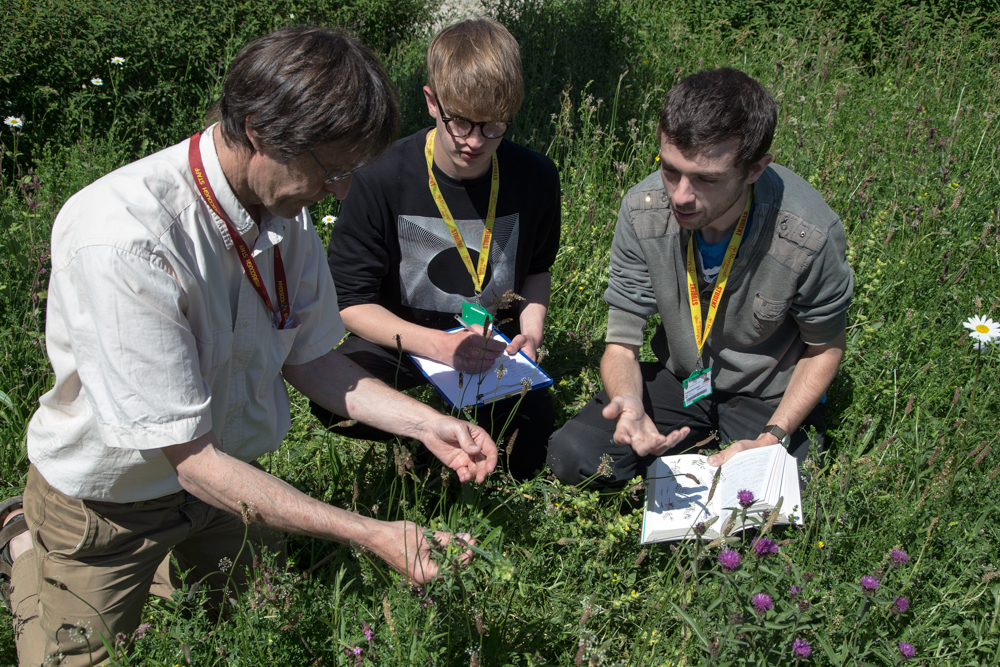Course modules
Year 1
Applied Animal Science Research (Double module)
This module aims to examine current advancements in animal behavioural and physiological research and in the development of practical management strategies across the animal industry. Through the critical evaluation of management practices and the development of research this module will allow for the suggestion of future improvements and recommendations whilst considering their possible impact of welfare. The module will investigate environmental aspects of social behaviour for a range of species including companion, farm, wild and zoo based individuals whilst developing skills in effective communication with peers and industry representatives.
Applied Conservation Science
This module aims to examine current conservation strategies, critically evaluate their effect on biodiversity through research and discussion. The module will investigate the management of ecosystems and the strategies used to conserve them. The module will develop skills in habitat and population management alongside methods for predicting future trends.
Behavioural Ecology
This module examines the adaptive value of behaviour to enhance survival by exploiting resources, avoiding predators and maximising reproductive success. This module aims to explore the idea that behaviours are part of strategies to maximise reproductive success. The costs and benefits of alternative strategies to predict optimal strategies will be evaluated. The module will examine various life history strategies in a fluctuating environment and discuss the implausibility of the concept of group selection. General skills objectives of the module are to further develop competence in analytical and critical thinking, communication, numeracy and data analysis, information gathering and time management.
Research Project (Double module)
The aims of this double-weighted module is to equip students with the ability to understand and define clearly a problem to be solved and extract relevant material from a literature survey. Also to develop the ability to design and undertake an original investigation and to further develop the ability to present, analyse and interpret results. Students should also develop the ability to present a coherent, critical account of the work and how it relates to that of others; develop management skills; achieve a measure of independence and integrate the different aspects of the course and will be provided with e an opportunity to develop a programme of supervised independent research leading to the presentation of a substantial written Project.
Entry requirements & additional information
- Entry requirements
- Learning and assessment
- Progression
- Careers
- Professional accreditations
- Special requirements
Entry requirements
Foundation Degree or HND in a related subject or 2 years (one at Level 4 and the other at Level 5) of Honours Degree work in a related discipline achieved at 'pass' standard or above. Applicants with alternative equivalent qualifications will also be considered positively. Applicants must also produce evidence of successfully completing a research based module at level 5.
Applicants for whom English is a second language must be able to demonstrate proof of International English Language Testing System (IELTS) at level 6.0 (with no component score lower than 5.5) or equivalent.
All offers may be subject to successful interview
Learning and assessment
Learning Environment:
Learning activities on the course are diverse, including lectures, seminars, tutorials, practical sessions and workshops.
Students are expected to undertake extensive independent study and research to support lectures, seminars and assessments. Group work and group presentations form an important part of the course. Students will have access to specialist IT hardware and software, an on-line learning environment and reference facility.
Assessment:
Students will complete a variety of assessments including examinations and tests, practical assessments, essays, presentations, reports and group work.
Additional Information:
The course may involve visits or lectures delivered by external speakers who will outline the work/research interests of the various organisations they represent. This provides an excellent opportunity to find out about both the technical issues and developments being discussed and the employment and career opportunities available in the various fields.
What work experience can I get?
There is no formal work placement on this course but the programme does offer the flexibility to gain additional experience during the course, where students have opportunity to undertake extra-curricular work experience or internships with employers throughout the UK and overseas.
Progression
On successful completion of the course, students may apply for postgraduate study programmes such as MSc, M Phil, PhD or PGCE.
Careers
What careers can you follow?
Graduates will be in a position to apply for posts in the animal and related industries with examples of possible careers including:
Conservation organisation representatives/field workers
Welfare inspectors
Education and research officers
Postgraduate research and development
Local authority/Defra/HM customs animal welfare officers
Animal collections and sanctuary work
Professional accreditations
All students are encouraged to pursue membership of the Association for the Study of Animal Behaviour (ASAB) and British Society of Animal Science (BSAS) as well as pursuing scholarships and travel awards with other professional animal organisations.
Special requirements
Laboratory coats are required for practical laboratory sessions. Waterproof clothing for field and farm work and outdoor visits. A black warehouse coat is essential for working on the Animal Centre and can be purchased from the on-line Myerscough Shop. Dark coloured combat trousers are also recommended.
Extra Costs:
Additional costs for items that are essential for the course:
· Black Warehouse Coat - £15
· Laboratory Coat - £12
· Waterproofs and boots £50
Additional costs for opportunities and items that are optional for the course include:
· Field Study trip to Shamwari Game Reserve (S. Africa) £3,500
· Binoculars £30
Latest news, Animal studies
-
Myerscough leads the way in research in the land-based and sport sectors
- Published
- Friday 26 Nov 2021
-
Arran the Wildcat is purr-fect for conservation programme
- Published
- Wednesday 3 Nov 2021
-
Degree students celebrate completing dissertations
- Published
- Friday 16 Apr 2021
-
Winners announced in Myerscough Golden Roses 2021
- Published
- Monday 22 Mar 2021
-
Myerscough achieves Bronze ‘Hedgehog Friendly Campus’ status
- Published
- Tuesday 23 Feb 2021


